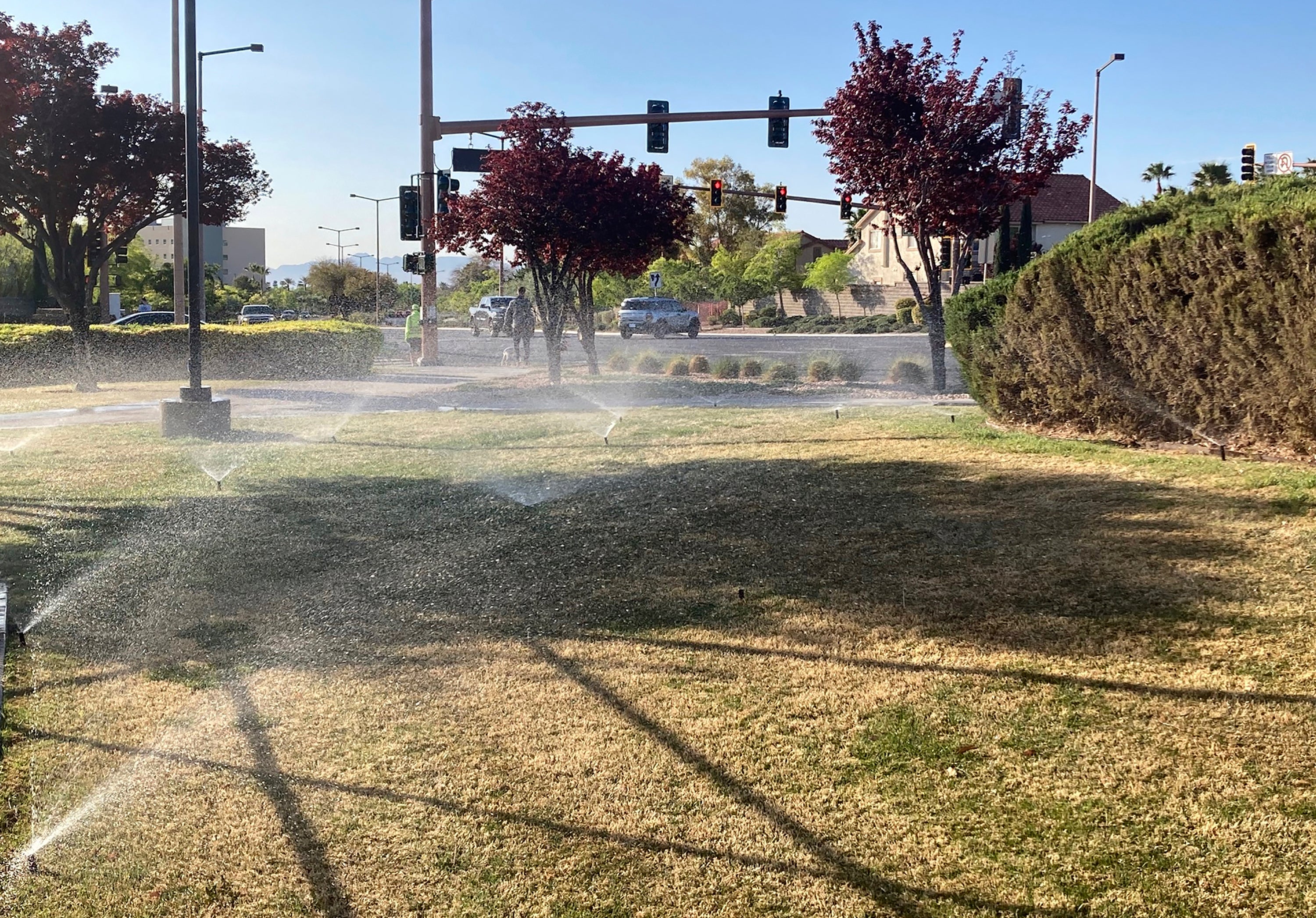Grassy lawns banned in Las Vegas to conserve water under one-of-a-kind state law
In the midst of a megadraught, Nevada’s biggest city mandates the removal of all existing turf

Las Vegas has for years struggled with water scarcity, a struggle likely to intensify with the climate crisis in the coming years. Now, the city is taking one aggressive measure in response: under a new state law, it is banning all grass lawns and mandating their removal.
The entriety of the American southwest is facing water conservation challenges. The dramatic growth of the region over the last several decades accompanied by climate change-induced draught have caused serious long-term concerns about where cities, states, and Indigenous tribes will get their water from.
Las Vegas, with its heavy tourist economy and location in the desert of southern Nevada, has particularly acute challenges. The city is reliant on nearby Lake Mead for the vast majority of its drinking water, and Lake Mead has been shrinking for decades. It is projected to be just a quarter full by 2023 and is already supplying less water to states like Arizona.
The fate of Nevada and its neighboring states is almost certainly tied to the global fight to reverse the most harmful effects of climate change — an international effort that individual cities like Las Vegas will have just a small part in.
But Las Vegas is taking steps to play that part, and that, right now, means that turf that serves only an aesthetic purpose has to go. The state has declared that only turf which has some functional purpose, like athletic fields or cemeteries, can remain. Everything else will be torn up and replaced by 2027 with landscaping more suitable to the Mojave Desert climate.
Las Vegas residents are no strangers to conservation efforts around their water use, particularly as it relates to lawns. The city has been employing measures aimed at cutting water use on lawns for years, establishing limits on when people could water and investigating people who were charged with wasting the resource.
Now, however, it’s taking a more drastic step. The Southern Nevada Water Authority estimates that there are nearly 4,000 acres of grass to be removed, which could result in early 10 billion gallons of water saved each year. That would be significant for an area in which every drop is carefully counted.
Work has already started on the effort to identify and remove the unnecessary turf, which is being made with the aid of an advisory committee made up of community members and will take several years to complete.
When it’s done, the city will look different — but far more represnetative of its location in the desert during a decades-long draught and more attuned to the realities of trying to survive in it.
“The lush green landscape creates a false sense of security,” Howard Watts, the Democratic state assemblyman who sponsored the law, toldThe New York Times. The new rules “will help people who may have a bit of a disconnect... I think it’s going to change that.”
Join our commenting forum
Join thought-provoking conversations, follow other Independent readers and see their replies
Comments
Bookmark popover
Removed from bookmarks